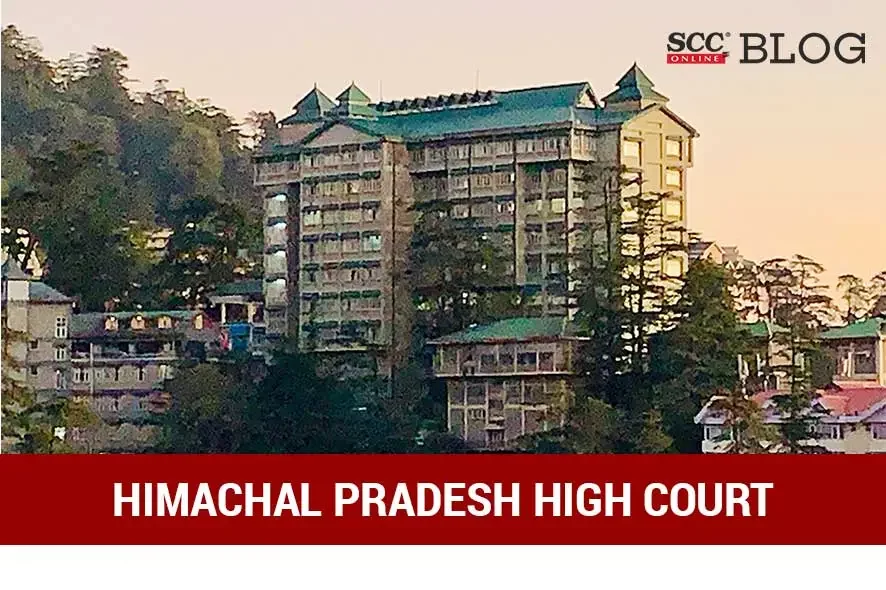Himachal Pradesh HC: In an appeal filed by the State challenging the judgment and order passed by the Single Judge Bench, wherein the Court directed the State to pay an annual increment to the respondent for the extended period of one-year with all consequential benefits., the Division Bench of Justice M.S. Ramachandra Rao*, CJ. and Justice Ajay Mohan Goel, J. dismissed the appeal and upheld the Single Bench decision while awarding a sum of Rs. 10,000/- to the respondent by State within the span of four weeks.
Factual Matrix
On 31-5-2013the the respondent retired as a Tehsildar. However, he was given an extension of service for a period of one year by the government i.e., from 1-6-2013 to 30-5-2013, provided that such extension would not entitle him to any additional increment/additional financial benefits, except the last pay drawn on 31-5-2013. The respondent approached the competent authority for the release of his regular increment which was due to him from the month of July, 2013, But the authority did not take any decision.Thereafter, he filed a writ petition seeking regular increment from the State, as per the instructions issued by the Government of Himachal Pradesh mentioned in Chapter 22 of the Handbook on Personnel Matters Vol.II that perused to provide all consequential benefits and also interest at 12% per annum from the date it fell due till its realisation to him. To this, the State contended that the respondent is not entitled to any additional increment owing to the abovementioned notification acknowledged by him.
The said contention was rejected by the Single Bench as Clause 22.2 of the said Chapter 22 clearly entitles an employee, who is given an extension of service, to increments as well. Thus, the Single Judge Bench, directed the appellants to pay an annual increment for the extended period of one-year w.e.f. July 2013 with all consequential benefits.
Analysis and Decision:
After taking note of the Handbook containing executive instructions in relation to personnel matters of State Government employees , the Court highlighted the “distinction between extension and re-employment” where “extension in service” is continuance in service and the incumbent does not superannuate or retire on reaching the age of superannuation. It further said that the period of extension in service counts for qualifying service for the purpose of pension, gratuity and other retirement purposes, besides entitling the incumbent to full pay, allowances and the increment etc. The Court further said that, as per the Clause 22.2 of Chapter 22 employment after actual superannuation or retirement is called “re-employment” and this period of re-employment does not qualify for pension and other benefits.
Thus, the Court said that the State cannot deny the said benefit to the respondent since Clause 22.2, Chapter 22 of the Handbook on Personnel Matters, Vol-II is binding on the State.
The Bench also stated that the reason why the State denied the additional increment to respondent and discriminated against him alone, compared to others who have got same benefits, is not explained.
After placing reliance on Central Inland Water Transport Corporation Ltd. v. Brojo Nath Ganguly, the Court said that there is a huge unequal bargaining power between the State and the appellants ,wherein the respondent was a mere employee of the State, and in a weaker position not having equal bargaining power with the State. Due to this, the respondent had to accept the extension on the terms contained in Notification or leave it, however, unreasonable or unfair the term of the order of extension was.
The Court reiterated that the constitutional mandate mentioned under Article 14 guarantees all person equality before the law and the equal protection of the laws and intends to secure social and economic justice. Further, it said that the Courts are under a duty to strike down an unfair and unreasonable contract, or an unfair and unreasonable clause in a contract, entered between parties who are not equal in bargaining power. It will apply to situations in which the weaker party can obtain means of livelihood only upon the terms imposed by the stronger party or where a man has no meaningful choice, but to give his assent to a contract however unfair, unreasonable, and unconscionable a clause in that contract or rules may be.
The Court concluded that the respondent didn’t have a choice in the matter at all and he had acquiesced to the condition of the extension order that he would not get any additional increment. Also, there were no laches on the part of the respondent in enforcing this claim for the said increment, as he made representation on 19-11-2013 and reiterated it again on 25-4-2014. Thus, the Court held that the increment would be payable in case of extension in service, and the State could not deny the said benefit to the respondent since Clause 22.2, Chapter 22 of the Handbook on Personnel Matters, Vol-II is binding on the appellants.
The Bench further reiterated that the State should act as a model litigant and should not put forth frivolous, vexatious and technical, but unjust, contentions to obstruct the path of justice1
The Court showed distress that in such small value matters also, the State continues to litigate and harass the citizen. Further, imposed a cost of Rs. 10,000/- on the State, to be paid to the respondent.
[State of H.P. v. Rajinder Fishta, 2023 SCC OnLine HP 789, decided on 15-06-2023]
*Judgment Authored by: Justice M.S. Ramachandra Rao
Advocates who appeared in this case :
Counsel for Petitioner: Advocate General Anup Rattan, Advocate Navlesh Verma, Additional Advocate General Pranay Pratap Singh, Advocate Gautam Sood, Deputy Advocates General Arsh Rattan;
Counsel for Respondents: Senior Advocate J.L. Bhardwaj, Advocate Sanjay Bhardwaj.
1. Urban Improvement Trust, Bikaner v. Mohan Lal, (2010) 1 SCC 512







